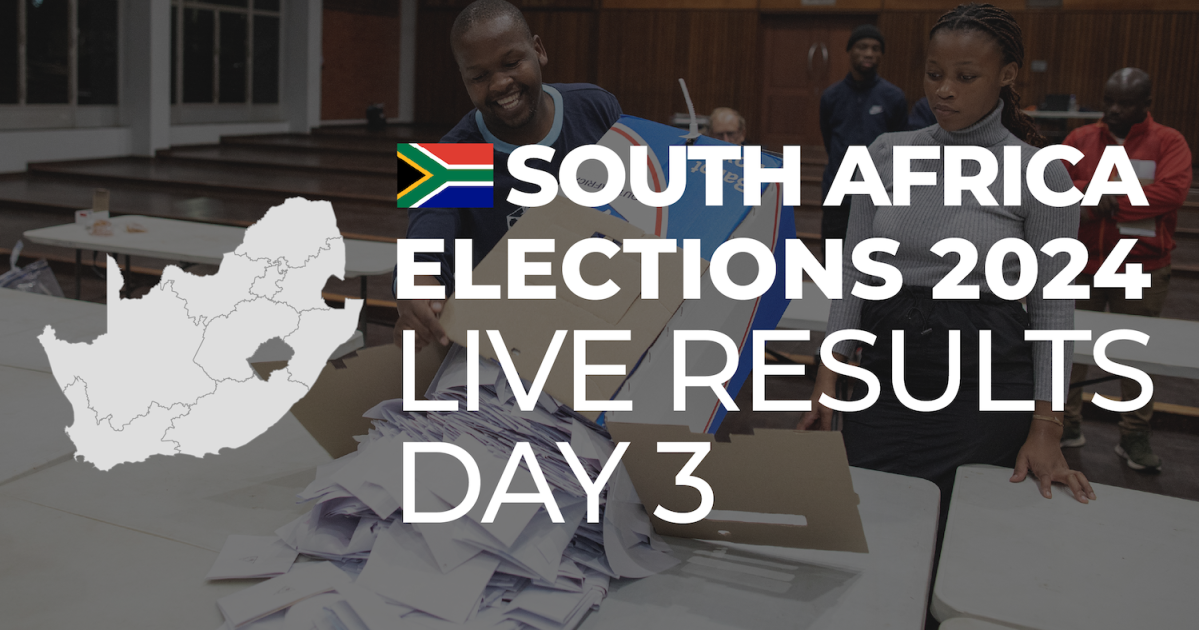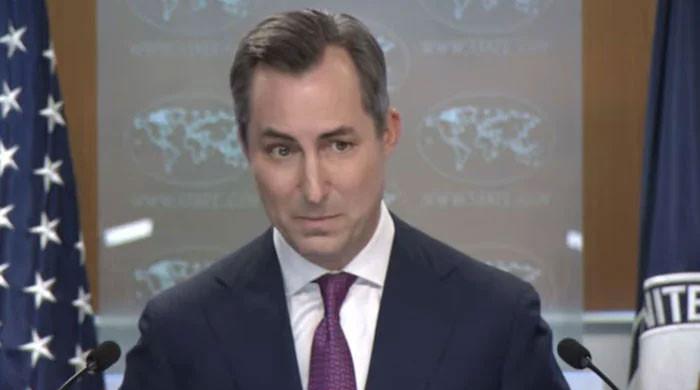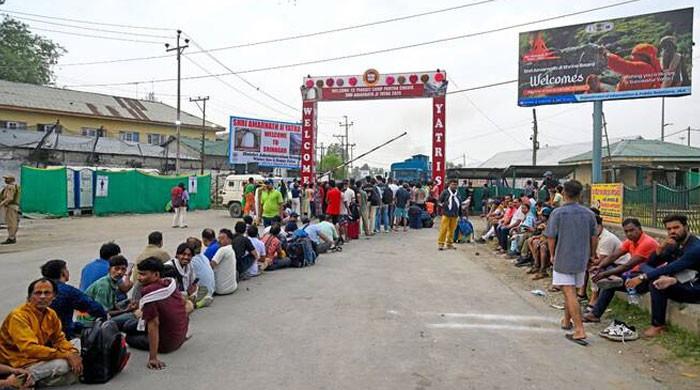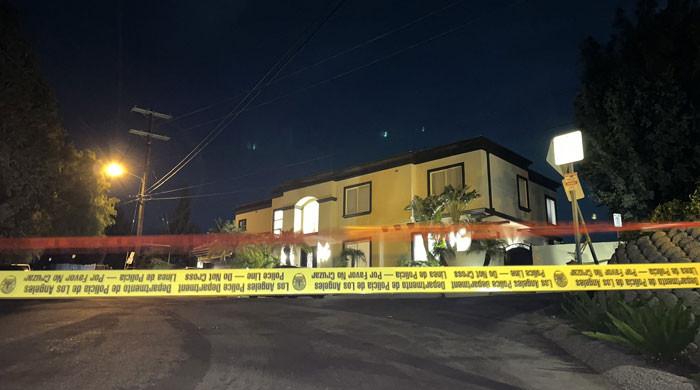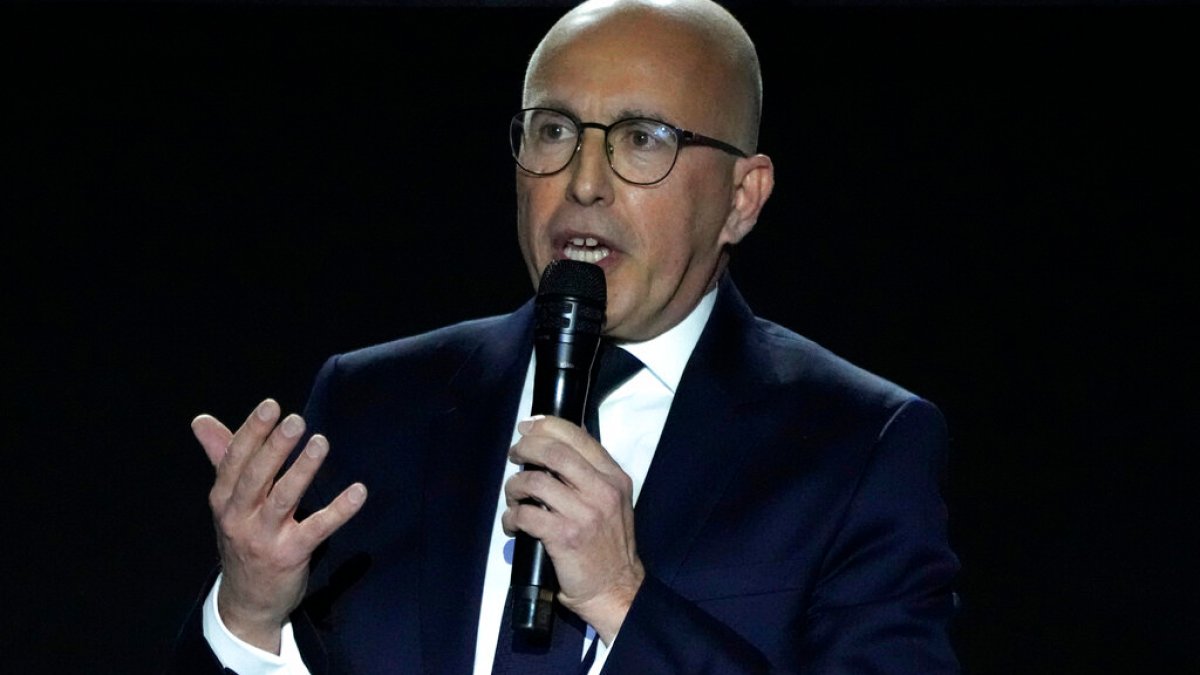With more than 97 percent of the votes counted, the results show that the ruling ANC will lose its majority and will be forced to look for coalition partners.
With more than 97 percent of the votes counted, the ruling African National Congress (ANC) leads with just over 40 percent of the national vote, three days after the country voted in a national election that could pose the biggest challenge to the ANC. political dominance since the end of apartheid in South Africa.
The Democratic Alliance (DA), the country's main opposition party, is currently in second place, followed by the MK party and the EFF.
Here's how the four main parties are faring, according to the latest updates from the Electoral Commission, known as the IEC.
Results by province
The ANC currently leads in seven of South Africa's nine provinces. He has more than 50 per cent in the vote count in five of them: Limpopo (74 per cent), Eastern Cape (64 per cent), North West (59 per cent), Free State (53 per cent) and Mpumalanga (52 per cent). hundred). In the Northern Cape (49 per cent) and Gauteng (36 per cent), the ANC currently leads with a plurality of votes, but may need coalition partners to form governments.
The opposition Democratic Alliance (DA) is on track to continue governing the Western Cape (53 percent), which it has done since 2009.
And in KwaZulu-Natal (KZN), former president Jacob Zuma's MK party has the highest number of votes with around 46 per cent, ahead of the ANC with only around 18 per cent.
What happens if no party wins a majority?
If the ANC does not receive more than 50 percent of the vote, it will need to reach an agreement with other parties to form a coalition government. The choice of coalition partner will depend on the support needed to cross the 50 percent mark.
What are the main parties in the race?
Four of the main players to watch out for in this year's elections are the ANC, the DA, uMkhonto we Sizwe (MK) and the Economic Freedom Fighters (EFF).
Previous election results
The ANC has won every national election since the end of apartheid in 1994, when Nelson Mandela became the country's first black president.
In 1994, the ANC won 62.5 percent of the vote. In 1999, it won 66.4 percent. In 2004, it reached its highest levels, winning almost 70 percent of the vote. In 2009, it won almost 66 percent and in 2014, 62 percent.
In the last election in 2019, the ANC achieved its lowest margin of victory, winning 57.5 percent of the vote.
The DA has come second in the last five elections.

Parties in the current National Assembly
The lower house of parliament is currently represented by 400 members from 14 political parties, distributed proportionally based on the votes each party received in the 2019 elections.
- AFRICAN NATIONAL CONGRESS: 230 seats (57.5 percent)
- GIVES: 84 seats (21 percent)
- FEF: 44 seats (11 percent)
- Inkatha Freedom Party (IFP): 14 seats (3.5 percent)
Ten other parties occupy the remaining 28 seats.

How is the president elected?
South Africans do not vote directly for the president.
Instead, they elect members of the National Assembly, who then elect the president by simple majority: 201 or more votes determine the presidency.
If the ANC wins a majority, President Cyril Ramaphosa, 71, is likely to be re-elected president to serve his second and final five-year term.

When will the final results be announced?
In the last national elections held on May 8, 2019, the final results were announced three days later.
However, this year, with one more ballot to count, checking the results may take longer.
The IEC says it will announce the election results on Sunday.

